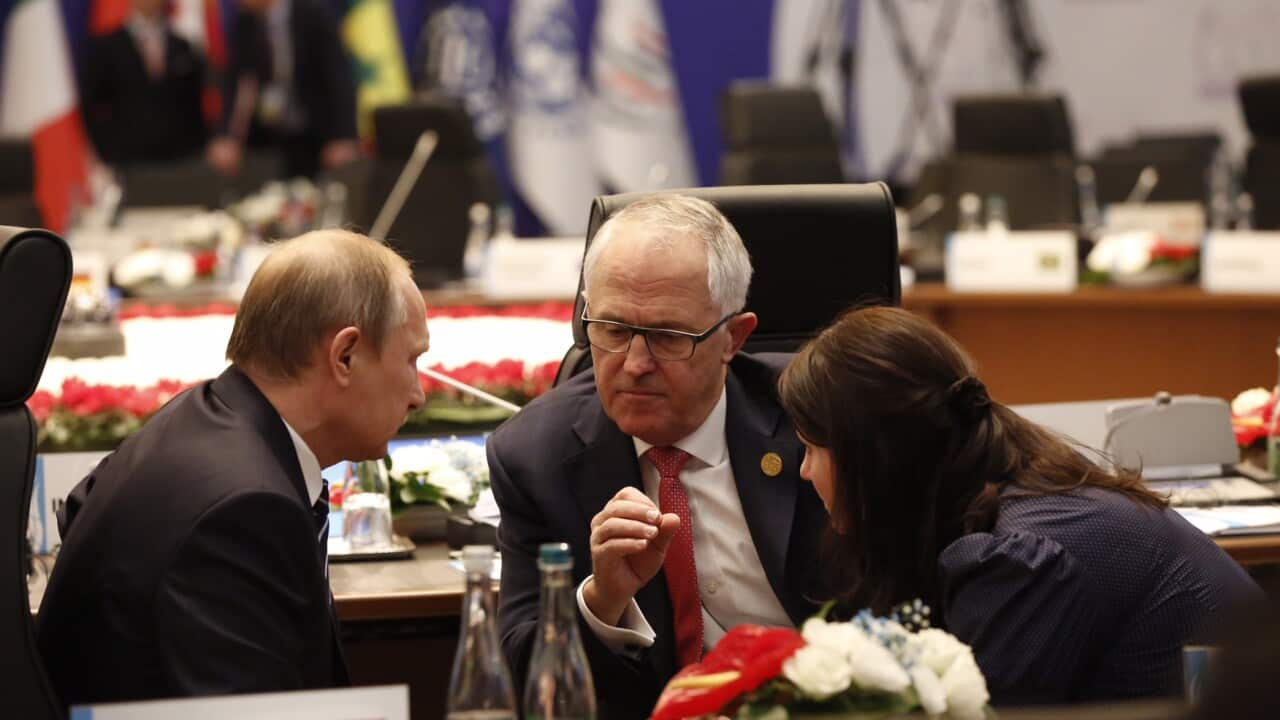Prime Minister Malcolm Turnbull has talked briefly with Vladimir Putin as the US and Russia consider stepping up military action against Islamic State.
Mr Turnbull and the Russian president met briefly during a session of the G20 summit in the Turkish resort city of Antalya before the prime minister jetted off to Manila for the start of the APEC summit.
No details of their talks have been disclosed.
However, Russia has agreed with the US and other members of a group set up to deal with Syria for there to be a UN Security Council resolution, ceasefire and other steps towards a political solution in the war-wracked country.
Australia is already the second largest contributor to the US-led coalition in Iraq, with RAAF combat aircraft conducting bombing raids on IS targets in Iraq and Syria.
Mr Turnbull will meet with US President Barack Obama for the first time as leader in Manila on Tuesday afternoon, when the pair will compare notes on how to find a political solution in Syria and defeat IS, also known as Daesh and ISIL.
Foreign Minister Julie Bishop, who's also in Manila and has teleconferenced with Mr Turnbull and other members of the national security committee, said she believed Daesh would seek to repeat attacks similar to those in Paris.
This made it all the more important to forge a better international effort.
"Given that the US and Russia hopefully are forming a single coalition, we'll continue to work closely with them to ensure that Australia continues to play its part in seeking to disrupt and destroy Daesh," she said.
Ms Bishop said she expected military operations to intensify but was reluctant to talk about boots on the ground.
Australia has yet to receive any formal request for extra effort beyond the training of troops in Iraq and the air strikes.
"We would always consider a request in a measured and collaborative way, working with our allies," she said.
Former prime minister Tony Abbott says Australia should be prepared to send special forces soldiers into Syria and Iraq to help destroy IS militants and also to relax restrictive rules of engagement to allow an increase in Australian air strikes on IS targets.
The government has little appetite for either.
Ms Bishop said Australia played by the rules.
"We're not going to expose our soldiers to international consequences should we be acting unilaterally," she said.
A spokesman for Defence Minister Marise Payne said there were no plans to ease rules of engagement for Australian combat aircraft, intended to minimise the risk of civilian casualties.
The government is also considering attaching a warship to a French carrier task group set to start air strikes against IS in Iraq and Syria later this month.
"The government is considering that and I look forward to speaking about it further with the PM when he returns," Senator Payne told reporters in Adelaide.
Share

